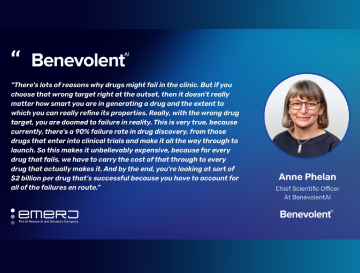While scientists scramble to identify potential treatments and develop a vaccination to treat the physical symptoms of COVID-19, the rest of society is faced with coping with the secondary effects of the virus - the mental toll of isolation, economic instability or family crises.
On top of this, with the internet awash with news of COVID-19, our phones abuzz with continual updates on the latest government orders and infection spikes, it is often difficult to switch off from the seemingly relentless background hum of worry. Rarely has Mental Health Week been so directly relevant to so many. However, in this struggle we possess a powerful and potent antidote: kindness.
Multiple studies have proven that kindness really does matter. From a personal perspective, kindness can help improve feelings of happiness and reduce stress and improve emotional wellbeing (ref). It has also been demonstrated that one act of kindness can often encourage others to repeat the good deeds they’ve experienced themselves - contributing to a more positive community (ref). At an organisational level, a sense of community helps to reposition the focus from the self to the group and make clearer the vision of a larger purpose or organisational mission. In the case of Benevolent, this sense of community is essential in uniting our eclectic team of science and technology together in a common purpose: to re-engineer drug discovery and deliver life changing medicines for patients in need.
At Benevolent, kindness is enshrined in one of our five core values: Be Benevolent. This value sits at the heart of our business and informs all that we do. In the bigger picture, we put this into action as we deploy our skills in the service of finding life changing drugs for patients suffering from the thousands of diseases that have no treatment. ‘Be Benevolent’ also infuses our culture and everyday actions, which are informed by a collective commitment to championing openness, inclusivity, kindness and generosity.
With this in mind, and considering all of the available evidence, we have tried to step up to help our team be kind to themselves through health and wellness initiatives. Firstly, we have invested in mental health support services as part of our comprehensive benefits package. This week we launched our Benevolent Wellness Resource internally, to help the team look after their mind, body and general wellbeing, in addition to supporting staff experiencing poor mental health. We also hold twice-weekly yoga classes (now moved online) as a means of prioritising physical and mental wellbeing, especially throughout this uncertain and challenging period. As our in-house yogis and informaticians, Marton and Francesca, explored in this recent blog, yoga has been shown to improve mild depression, anxiety, and general quality of life scales in young adults (ref). Through all of these initiatives discussed above, we hope to move the dial towards a culture which prioritises wellness, in which staff feel supported and are able to excel.
Moving beyond wellness, Benevolent has also committed to providing help, reducing stigma and creating an open culture around mental health. In this recent blog, our HR Director and Mind Campaigner, Rohan, outlined his own journey from mental health to leadership. This blog not only demonstrated the life-saving power of kindness, it also conveyed the importance of vulnerability when it comes to mental health. The importance of changing the narrative around vulnerability also emerged as a key theme at our internal ‘Mental Health Awareness Fireside Chat’, in which Rohan was joined by fellow mental health advocate Silja Litvin, founder of PsychApps, and Pete Trainor, CEO at Vala. The panel demonstrated how there are many myths surrounding vulnerability that still need to be busted, principally that vulnerability does not equal weakness: we’re not a burden to others when we’re vulnerable, it's when we don’t open up that things become more difficult.
During the panel, Pete Trainor also put forward the case for empowering vulnerability through authentic leadership: leaders must accept that mental wellbeing is part of the DNA of both businesses and individuals. Indeed, Deloitte found that a sixth of workers experienced a mental health problem at any one time, with stress, anxiety and depression thought to be responsible for almost half of working days lost in Britain due to health issues (ref). Trainor went on to argue that it is a leaders’ role to promote transparency and acceptability when talking about mental health challenges. One example of this is by promoting effective people management, ensuring that all managers or leaders are appropriately trained and supported in effective management practices when talking about mental health and wellbeing. At Benevolent we have rolled out support to all line-managers to equip them with the tools to be able to support their team better, and to help create a culture in which people feel empowered and supported to come forward in times of struggle.
While there is still much to be done in terms of supporting mental health and wellbeing at work, the coronavirus crisis has brought us to a pivotal point in our history and in how businesses will be run in the future. Despite the many unknowns, one thing is certain: kindness will play a key role in shaping the future of business.
Back to blog post and videos




